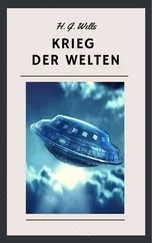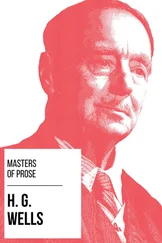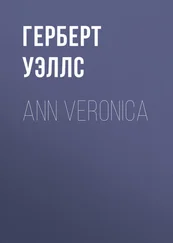was approached on one or two occasions, but avoided dexterously;
and they talked chiefly of letters and art and the censorship of
the English stage. Mr. Stanley was inclined to think the
censorship should be extended to the supply of what he styled
latter-day fiction; good wholesome stories were being ousted, he
said, by "vicious, corrupting stuff" that "left a bad taste in
the mouth." He declared that no book could be satisfactory that
left a bad taste in the mouth, however much it seized and
interested the reader at the time. He did not like it, he said,
with a significant look, to be reminded of either his books or
his dinners after he had done with them. Capes agreed with the
utmost cordiality.
"Life is upsetting enough, without the novels taking a share,"
said Mr. Stanley.
For a time Ann Veronica's attention was diverted by her aunt's
interest in the salted almonds.
"Quite particularly nice," said her aunt. "Exceptionally so."
When Ann Veronica could attend again she found the men were
discussing the ethics of the depreciation of house property
through the increasing tumult of traffic in the West End, and
agreeing with each other to a devastating extent. It came into
her head with real emotional force that this must be some
particularly fantastic sort of dream. It seemed to her that her
father was in some inexplicable way meaner-looking than she had
supposed, and yet also, as unaccountably, appealing. His tie had
demanded a struggle; he ought to have taken a clean one after his
first failure. Why was she noting things like this? Capes
seemed self-possessed and elaborately genial and commonplace, but
she knew him to be nervous by a little occasional clumsiness, by
the faintest shadow of vulgarity in the urgency of his
hospitality. She wished he could smoke and dull his nerves a
little. A gust of irrational impatience blew through her being.
Well, they'd got to the pheasants, and in a little while he would
smoke. What was it she had expected? Surely her moods were
getting a little out of hand.
She wished her father and aunt would not enjoy their dinner with
such quiet determination. Her father and her husband, who had
both been a little pale at their first encounter, were growing
now just faintly flushed. It was a pity people had to eat food.
"I suppose," said her father, "I have read at least half the
novels that have been at all successful during the last twenty
years. Three a week is my allowance, and, if I get short ones,
four. I change them in the morning at Cannon Street, and take my
book as I come down."
It occurred to her that she had never seen her father dining out
before, never watched him critically as an equal. To Capes he
was almost deferential, and she had never seen him deferential in
the old time, never. The dinner was stranger than she had ever
anticipated. It was as if she had grown right past her father
into something older and of infinitely wider outlook, as if he
had always been unsuspectedly a flattened figure, and now she had
discovered him from the other side.
It was a great relief to arrive at last at that pause when she
could say to her aunt, "Now, dear?" and rise and hold back the
curtain through the archway. Capes and her father stood up, and
her father made a belated movement toward the curtain. She
realized that he was the sort of man one does not think much
about at dinners. And Capes was thinking that his wife was a
supremely beautiful woman. He reached a silver cigar and
cigarette box from the sideboard and put it before his
father-in-law, and for a time the preliminaries of smoking
occupied them both. Then Capes flittered to the hearthrug and
poked the fire, stood up, and turned about. "Ann Veronica is
looking very well, don't you think?" he said, a little awkwardly.
"Very," said Mr. Stanley. "Very," and cracked a walnut
appreciatively.
"Life--things--I don't think her prospects now--Hopeful
outlook."
"You were in a difficult position," Mr. Stanley pronounced, and
seemed to hesitate whether he had not gone too far. He looked at
his port wine as though that tawny ruby contained the solution of
the matter. "All's well that ends well," he said; "and the less
one says about things the better."
"Of course," said Capes, and threw a newly lit cigar into the
fire through sheer nervousness. "Have some more port wine, sir?"
"It's a very sound wine," said Mr. Stanley, consenting with dignity.
"Ann Veronica has never looked quite so well, I think," said
Capes, clinging, because of a preconceived plan, to the
suppressed topic.
Part 3
At last the evening was over, and Capes and his wife had gone
down to see Mr. Stanley and his sister into a taxicab, and had
waved an amiable farewell from the pavement steps.
"Great dears!" said Capes, as the vehicle passed out of sight.
"Yes, aren't they?" said Ann Veronica, after a thoughtful pause.
And then, "They seem changed."
"Come in out of the cold," said Capes, and took her arm.
"They seem smaller, you know, even physically smaller," she said.
"You've grown out of them. . . . Your aunt liked the pheasant."
"She liked everything. Did you hear us through the archway,
talking cookery?"
They went up by the lift in silence.
"It's odd," said Ann Veronica, re-entering the flat.
"What's odd?"
"Oh, everything!"
She shivered, and went to the fire and poked it. Capes sat down
in the arm-chair beside her.
"Life's so queer," she said, kneeling and looking into the
flames. "I wonder--I wonder if we shall ever get like that."
She turned a firelit face to her husband. "Did you tell him?"
Capes smiled faintly. "Yes."
"How?"
"Well--a little clumsily."
"But how?"
"I poured him out some port wine, and I said--let me see--oh,
'You are going to be a grandfather!' "
"Yes. Was he pleased?"
"Calmly! He said--you won't mind my telling you?"
"Not a bit."
"He said, 'Poor Alice has got no end!' "
"Alice's are different," said Ann Veronica, after an interval.
"Quite different. She didn't choose her man. . . . Well, I told
aunt. . . . Husband of mine, I think we have rather overrated
the emotional capacity of those--those dears."
"What did your aunt say?"
"She didn't even kiss me. She said"--Ann Veronica shivered
again--" 'I hope it won't make you uncomfortable, my dear'--like
that--'and whatever you do, do be careful of your hair!' I
think--I judge from her manner--that she thought it was just a
little indelicate of us--considering everything; but she tried to
be practical and sympathetic and live down to our standards."
Capes looked at his wife's unsmiling face.
"Your father," he said, "remarked that all's well that ends well,
and that he was disposed to let bygones be bygones. He then
spoke with a certain fatherly kindliness of the past. . . ."
"And my heart has ached for him!"
"Oh, no doubt it cut him at the time. It must have cut him."
"We might even have--given it up for them!"
"I wonder if we could."
"I suppose all IS well that ends well. Somehow to-night--I don't
know."
"I suppose so. I'm glad the old sore is assuaged. Very glad.
But if we had gone under--!"
They regarded one another silently, and Ann Veronica had one of
her penetrating flashes.
"We are not the sort that goes under," said Ann Veronica, holding
Читать дальше












